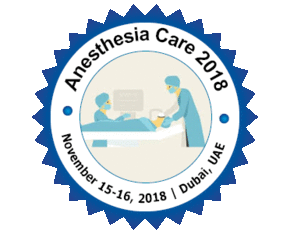
Biography
Biography: Khalid A. Abulmajd
Abstract
In 2002, when I was dealing with a case of sudden cardiac arrest, the case was 19 years old female who had gone through a
tonsillectomy procedure. I breathed a sigh of relief when the case was revived aft er an eff ective CPR, all vital signs became
within the acceptable range in addition to a spontaneous regular breathing. I met the patient family and reassured them. An
hour later, the monitor declared an alarm with fl at ECG, and the case passed away irrespective of the continuous attempts of
CPR. I was so distracted, couldn’t meet the family again and I told my collages to take charge. Aft er that I said what I had been
told 8 years back from my consultant; I have to leave, please cover me. Over the years, I’ve never forgotten that case or the
events of that day. Now, 16 years later, however I changed my career, it still haunts me.
Accountable: It is not easy to answer the fi rst part of the question, unless we understand the concept of medical errors.
As an opportunity for improvement not an area of blame. (Actions to prevent recurrence)
Second Victim: Second Victims are “healthcare providers who are involved in an unanticipated adverse patient event, medical
error and/or a patient related injury and become victimized in the sense that the provider is traumatized by the event. Second
Victim is referring to the impact on the healthcare providers involved in a negative patient outcome- especially when there has
been an error or the provider feels responsibility for the outcome. Th ese events may cause the provider to feel guilty, fearful,
frustrated, anxious, depressed, demoralized and even suicidal. When accounting for numbers of active physicians per specialty,
anesthesiologists are more than twice as likely to die by suicide than any other physician. Surgeons are number two, then
emergency medicine physicians, obstetrician/gynecologists, and psychiatrists. University of Missouri study survey revealed
30% of respondents felt “persistently bad and at least somewhat impaired during the fi rst year aft er an incident. Another survey
of practicing American and Canadian physicians many suff ered from anxiety regarding future errors (61%), loss of confi dence
(44%), sleep disturbances (42%) and lower job satisfaction (42%). Only 10% of these doctors felt the institutions supported
them adequately.

